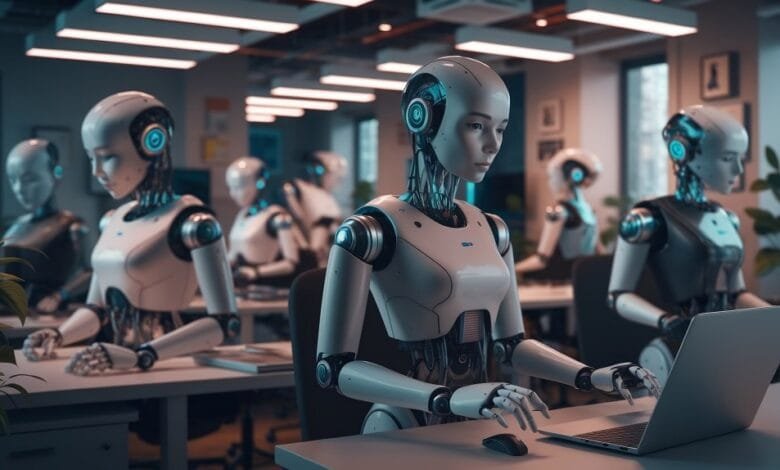Tomorrow’s Top Devs Will Do More Than Code – They’ll Lead AI

▼ Summary
– AI tools like ChatGPT and GitHub Copilot are replacing traditional junior developer tasks such as repetitive scripting and simple DevOps setups.
– Entry-level developers now need to contribute at higher skill levels, focusing on system understanding and problem-solving alongside AI.
– Learning to code manually remains crucial for deeper software comprehension, preventing over-reliance on AI for foundational skills.
– Future tech roles will emphasize product thinking and AI management over pure coding, blending developer and product manager skills.
– Teams will shift toward AI-augmented workflows, with fewer specialized roles and more focus on strategic collaboration and AI oversight.
The future of software development is undergoing a radical transformation, with AI reshaping traditional roles and demanding new skills from the next generation of tech professionals. Gone are the days when junior developers cut their teeth on repetitive coding tasks, today’s AI tools handle those with ease. This shift isn’t just about efficiency; it’s redefining what it means to be a developer altogether.
The traditional entry-level developer role is disappearing. Tasks like scripting, basic debugging, and simple deployments, once staples for newcomers, are now automated. Instead, beginners are expected to contribute at levels previously reserved for mid-career engineers. The challenge? Mastering system design, problem-solving, and collaborating with AI as a partner rather than a crutch.
For those starting out, the key is to resist over-reliance on AI. While it’s tempting to let tools like GitHub Copilot handle the grunt work, skipping hands-on coding practice risks stunting deeper technical understanding. True expertise comes from knowing how software works under the hood, a foundation critical for guiding AI effectively.
The most valuable developers of tomorrow won’t just write code; they’ll architect solutions. Think of them as technical product leaders, individuals who understand user needs, system design, and how to leverage AI to build efficiently. Coding skills remain essential, but they’re no longer the sole focus. The emphasis shifts to strategic thinking, creativity, and the ability to direct AI outputs.
Teams are evolving too. Rigid role boundaries, front-end, back-end, QA, are blurring as AI enables single developers to manage entire pipelines. Collaboration becomes less about execution and more about high-level decision-making, product alignment, and responsible AI use. Smaller, more versatile teams will replace large groups, prioritizing agility and innovation.
Looking ahead, the very definition of a “developer” will change. Hybrid roles blending coding, design, and product management will dominate. Success hinges on fluency in both technology and broader business goals, knowing not just how to build, but what to build and why.
This transition may seem daunting, but it’s also ripe with opportunity. Those who adapt, embracing AI as a collaborator while honing irreplaceable human skills, will thrive. The decline of junior coding tasks isn’t an endpoint; it’s a call to reimagine talent development for an AI-augmented future. The winners will be those who focus on what machines can’t do: innovate, strategize, and lead.
(Source: VentureBeat)





